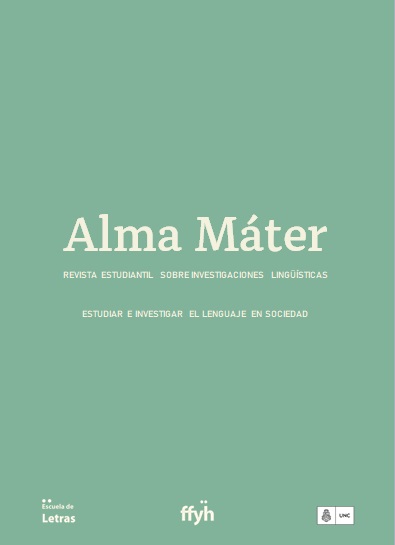A problem in the classroom: contributions to a discussion on supremacism and linguistic variation, the right to education and social inclusion.
Keywords:
social inclusion, education, linguistic variation, linguistic supremacismAbstract
This paper aims to investigate and critically reflect on a problem that has existed in Argentina since the birth of the modern public school as a correlate of the project of building the national State: how to develop public language policies that guarantee the right to education and social inclusion of all citizens, regardless of the speech community to which they belong.
The aim is to promote the recognition of Argentina as a country that, linguistically speaking, is deeply marked by immigration and internal migration; therefore, the approaches proposed in the article by Corina Courtis "La Argentina como contexto migratorio: una mirada socio/etnolingüística" (2011) and in the interview conducted by Natalia Montagna to Alicia María Zorrilla "Somos lo que de la lengua hacemos" (2021) are taken up here. The ultimate goal is to highlight the situation of linguistic supremacism in the classroom and the importance of respect for difference and the value of variation in languages at the educational level, understanding the school context as a space conducive both to the reproduction of the prejudices of the dominant ideology in linguistic matters and to their abolition.
Downloads
Published
Issue
Section
License

This work is licensed under a Creative Commons Attribution-NonCommercial 4.0 International License.
Los textos están protegidos por una Licencia Creative Commons Atribución/Reconocimiento-NoComercial 4.0 Licencia Pública Internacional — CC BY-NC 4.0. Dicha licencia autoriza a a terceros utilizar lo publicado, siempre que se otorgue el adecuado reconocimiento; se mencione la autoría del trabajo y la publicación en la revista Alma Máter y no se haga uso del material con propósitos comerciales.






